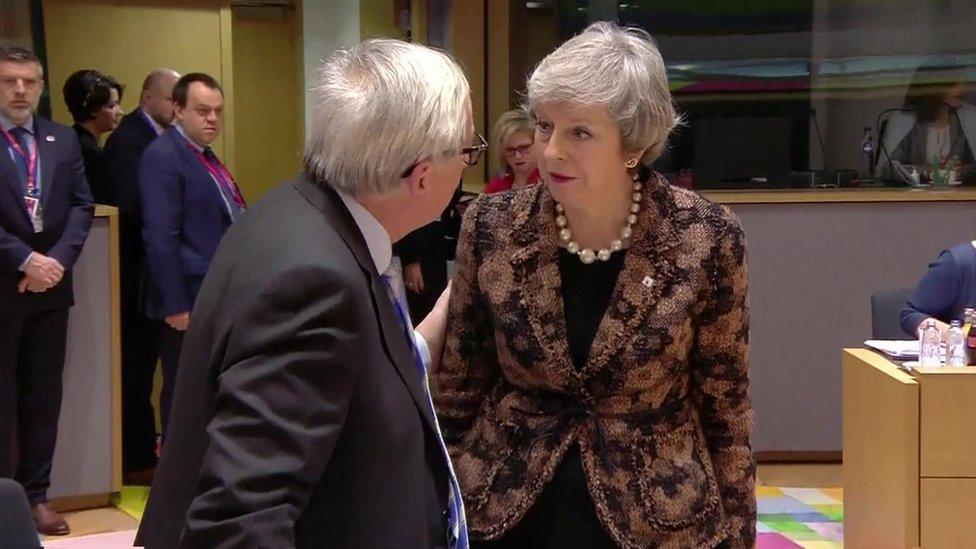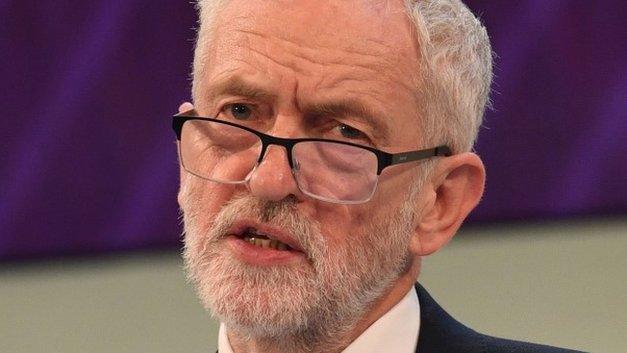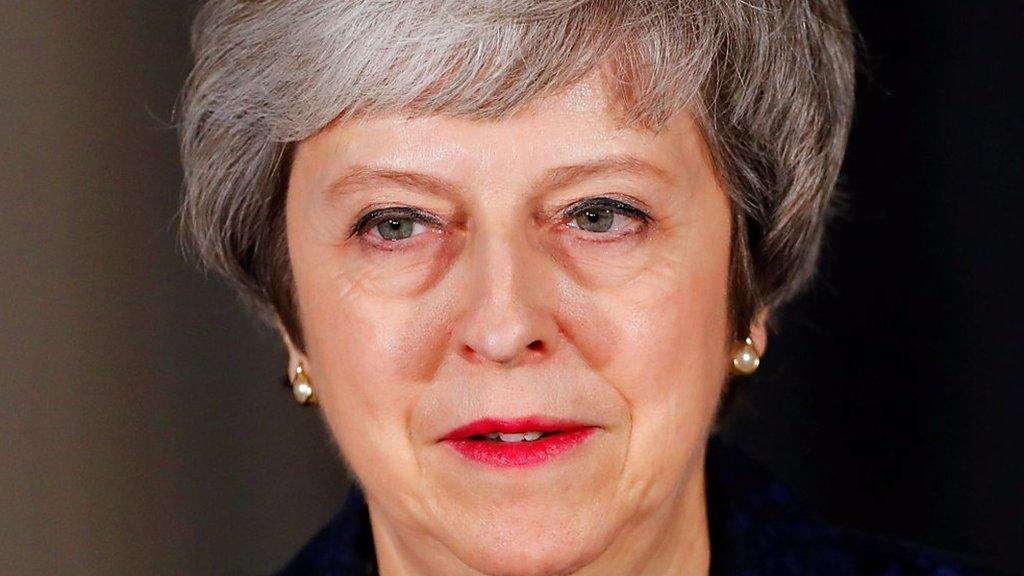Brexit latest: I'm confused... what's happening?
- Published
On Tuesday, members of parliament in the UK are expected to hold their all-important vote on Prime Minister Theresa May's plan for the UK's withdrawal and future relationship with the European Union.
The key vote - delayed from 11 December last year - comes with the clock continuing to tick on Britain's departure from the EU on 29 March.

Spoiler alert: I don't think anyone knows for sure how Brexit will end and we may not have much more certainty even by the end of next week.
But here's what we might learn: first, the extent of parliamentary opposition to Theresa May's deal and second, an idea of whether she has a Plan B.
That's not certain because if, as expected, she loses the big vote on Tuesday, technically she has until the following Monday to let MPs know what she intends to do. Options include trying her deal again, a different deal, no deal, a second referendum and delaying Brexit.

Remind me... what are they voting on?
Theresa May's deal involves two parts, a legally binding Withdrawal Treaty on the terms of Britain's departure from the EU, and a non-binding Political Declaration setting out hopes for the future relationship after Brexit.
Many pro-Brexit MPs in Mrs May's Conservative Party feel the Treaty leaves the UK too close to the EU, while most pro-Remain Conservatives and all the opposition parties feel the Declaration is far too vague.
What's likely to happen?
The BBC is predicting Mrs May faces the biggest defeat any government has suffered in 100 years. Much pressure will be exerted by Mrs May and her ministers until the very last second to reduce the size of the defeat.
What is Mrs May's Plan B if she loses?
Even her closest aides don't seem to know if she has one.
Both in public and apparently in private too, she insists her plan is the best and only way of delivering on the referendum result without destroying the economy.
But here are some suggestions as to what she might do: return to the EU to try to make her deal more attractive to MPs, challenge MPs to unite around an alternative to her deal, threaten MPs with a no-deal Brexit or another referendum on her plan or ask Brussels for a delay to the whole process.
What was that row with the Speaker all about?
That Mrs May has to come up with a Plan B sooner rather than later is, by the way, thanks to a massive row this week between John Bercow (the Speaker of the House of Commons) on one side and the government and pro-Brexit MPs on the other.
Amidst bitter allegations against the Speaker of being biased against leaving the EU, he basically ruled that he intends to help Parliament have more of a role in managing Brexit.
That matters because so far Parliament is against no deal and Mrs May's deal.
What's happening with the main opposition party?
Brexit has fractured and divided not just the governing Conservative Party but the main opposition Labour Party too.
Its leadership under the left-wing lifelong Eurosceptic Jeremy Corbyn is committed to some kind of Brexit, but most of its members and voters want a second referendum to stop Britain leaving.
Labour is committed to voting against Mrs May's deal on Tuesday, but what the party might do in future parliamentary votes, when push comes to shove closer to 29 March, is impossible to say.
So how does Brexit end?
No-one knows.
Put simply, more than two-and-a-half years on, MPs still can't agree what to do about the result of the referendum.
It's that basic and explains why Britain is experiencing its most profound political crisis since 1945.
But if nothing else happens, it's worth remembering the default position is for the UK to leave without a deal.
If Mrs May is not in the end prepared to risk a no-deal Brexit and if Parliament is determined to try to stop it anyway, something needs to happen. What, if anything, that something might be is still uncertain.

If you can't see the chatbot above tap on this link, external.
- Published14 December 2018

- Published13 December 2018

- Published13 December 2018

- Published30 July 2019

